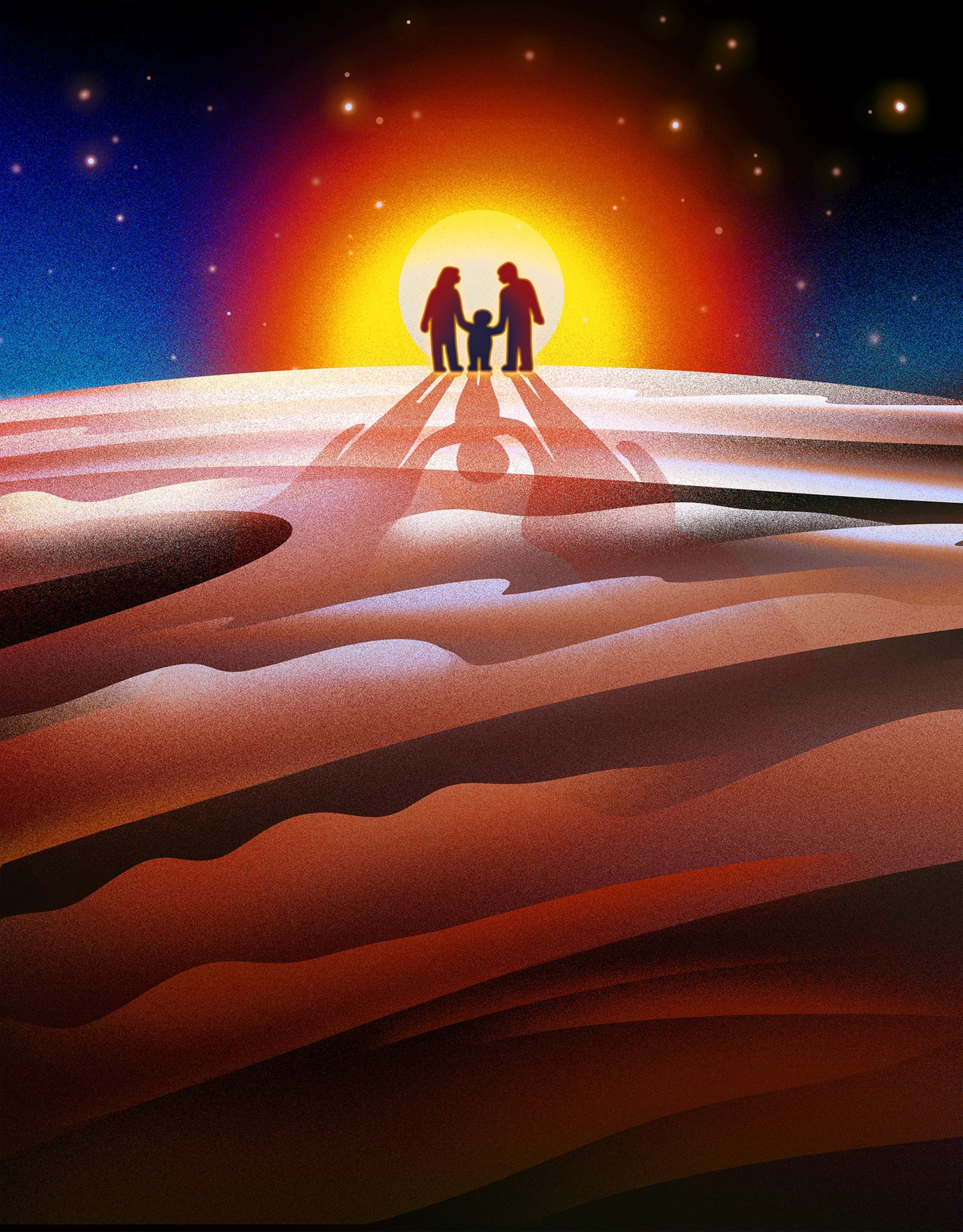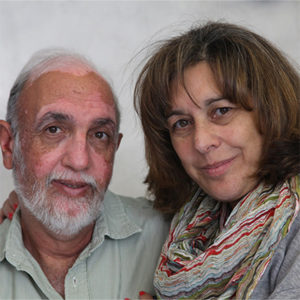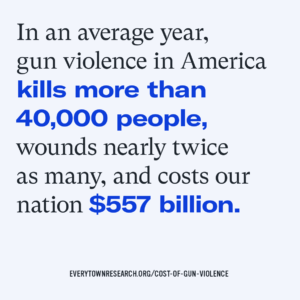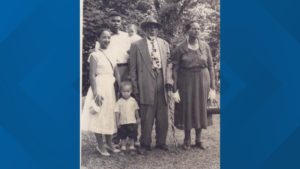Millennials and Gen Z have grown up on a different planet with tougher choices than their parents. Accepting that is the first step in avoiding despair.
Katie Cielinski and Aaron Regunberg are millennials. But they regard themselves as climate change babies. They came of age as the world was first awakening to the catastrophic impact that people were having on the environment.
Before marrying in 2017, the couple wrestled for nearly a decade with the ethical quandary of whether to bring another human onto an already crowded planet. Katie argued for raising a climate ally, somebody who would fight for a healthy planet, but Aaron feared for the future their child would face.
“We are exiting the stable climatic conditions that have spanned and supported the entire development of human civilization,” Aaron says. “This is a completely unique catastrophe in the lifetime of our species, unlike any that we’ve had to grapple with in the past.”
They are hardly alone in that struggle. Roughly 60 percent of Americans between 27 and 45 worry about the carbon footprint of bringing a child into the world, according to a 2020 survey published in the journal Climatic Change. The same survey found that more than 96 percent said they are concerned about the well-being of a child in a climate-changed world.
CLIMATE ANXIETY IS WIDESPREAD
Whether to have kids is but one of a slew of life-defining decisions that will shape the future of those born in recent decades in ways their parents and grandparents never fathomed. Should a 20-something take over the family farm in western Kansas, as prolonged drought and declining groundwater supplies remake agriculture in the United States? Should a recent graduate in Phoenix, which suffered 103 triple-digit temperature days in 2019 and will feel more like Baghdad by 2050, move north to a cooler region? Does a couple in Virginia Beach take out a 30-year mortgage on a home that lies in a flood plain?
Those vexing choices, combined with growing anxiety about how Earth might fare as it warms, have created a widening gap between the young, who see their future through the lens of the massive climate disruption ahead, and older generations, who will not live to see the worst of it.
“People tell me that I’m only 16 and this is something that I do not need to worry about at 16,” says Seryn Kim, who lives in Brooklyn, New York. “But I have grown up with my friends under the shadow of a ticking clock.“
Climate change babies will soon outnumber those who grew up before the crisis took off. Polls show youths far more worried than their elders, yet it is hard to predict whether this fast-expanding population can force the world to act decisively in time to curb emissions.
The level of anxiety can be crushing. More than half of 10,000 young people surveyed in a global study published last December in The Lancet. agreed with the statement: “humanity is doomed.” Almost half of the respondents said concerns about the state of the planet were interfering with their sleep, their ability to study, to play, and to have fun.
“I think that’s a response to both witnessing environmental catastrophes and to witnessing enormously powerful adults put narrow self-interest over collective survival again and again and again,” says Daniel Sherrell, 31, a climate activist and writer.
“What surprised us was just how frightened they were,” says Caroline Hickman, a British psychotherapist and the Lancet study’s lead author. “Kids take it personally. They feel like what we are doing to nature, we are doing to them.”
NOT YOUR MOTHER’S DOOMSDAY
Russell Behr, 17, a student at Saint Ann’s School in Brooklyn, reflects that thinking. He no longer trusts world leaders to respond in time.
“I hear from teachers and others—‘my generation screwed this up and now it’s for your generation to fix it,’” he says. That bothers him, because he thinks the young won’t be in positions of power to change things until it’s already too late.
In an effort to console him, Behr’s mother, Danielle Ausrotas, told him that every generation has faced its own challenges. Wars and hard times have played out regularly throughout American history. As a child, she experienced the threat of a potential nuclear attack and took part in regular “duck and cover drills” that involved hiding under desks at school.
But Russell sees a fundamental difference between then and now. “During the Cold War, people had to act to make things worse, somebody had to launch an attack,” he says. “But nowadays, it’s our inaction that is the problem.”
Behr gave up eating meat because cattle produce the potent greenhouse gas methane. Increasingly, he uses public transportation. He also participates in the occasional climate rally or school strike. He is considering adopting a child rather than having one of his own if he gets married. But he says if he thinks too much about what lies ahead, it can kill his ambition.
“I’ve always wanted to study history and be a teacher,” he says. “But I think—what will I be able to say to those kids in the future about what is going on now and why we didn’t do anything?”
TURNING ‘ECO-ANXIETY’ INTO ACTION
Emily Balcetis, a psychology professor at New York University, has watched the generational divide widen in her own home in ways that starkly framed the difference—and surprised her. At 42, she’s two years older than the oldest millennial, but remembers how as a schoolgirl she first learned on TV about starving polar bears. She “couldn’t stomach” the program and turned it off, she says, adding: “I guess I was in denial.” Now her son, Matty, has learned—in preschool—of those same threats to polar bears.
If the subject of climate change seemed too abstract for kids in the 1990s, times have changed, as Balcetis was starkly reminded one evening when she set dinner on the table in a disposable container. Matty burst into tears. “Mom, we can’t reuse or recycle this plate,” he cried.
“That hit me really hard,” she says. “I’m of the older generation that doesn’t feel that angst.” Matty is four.
In response to youth who feel overwhelmed, the University of Washington, Bothell, offers a course on eco-grief, taught by Jennifer Atkinson. She provides her students with tools like grieving rituals and mindfulness exercises to help them cope with their emotions. The first step, she says, is thoroughly acknowledging one’s pain.
“Summer used to be the big payoff after the endless gray winter out here,” Atkinson recalls. “Now that expectation has been hijacked by wildfire season where you can’t breathe outside.” To make things worse, last summer saw a massive heat dome hover over the region, resulting in weeks of the highest temperatures ever recorded in the Pacific Northwest.
Her students feel a mix of “sadness, fear and outrage” at the changes they’ve seen in their 20-odd years of life, Atkinson says. She doesn’t tell them to avoid these “negative emotions”—which are not actually negative at all, she says, but a healthy response to loss.
“Grief gives us clarity about what we love and do not want to lose, and anger motivates us to fight against injustice,” she says. “I urge my students to see these intense feelings as a kind of superpower they can channel to help create a better world.”
One of Atkinson’s students who has taken this message to heart is Tara Fisher, who decided to dedicate her work life to helping people traumatized by climate disasters. Fisher volunteered last summer to help Seattle’s homeless get indoors and out of the smoke and heat. If there is a silver lining to such events, she says, it is that people in the affluent world now understand that we are all in the same boat when it comes to climate.
“It teaches us to empathize with others in developing countries whose lives are already being devastated by climate change,” she says.
YOUNG AND ENGAGED
There is a sliver of good news in all the anxiety. In the United States, the young who have the most anxiety are also the most confident that they could do something about it, says Alec Tyson, associate director of the PEW Research Center, a think tank in Washington, D.C. Millennials and adults in Generation Z—those born after 1996—have shown high levels of engagement with the subject online and are doing more to live greener lives.
They have also built a formidable protest movement in an effort to prompt governments to act. In 2019, millions of youths turned out for same-day protests that spanned the globe, from Sydney to New York to Mumbai, India’s largest city.
“Striking is more important than education if you might not have a reason to have that education in the future,” says Anna Grace Hottinger, 19, who has been training her fellow students how to engage in climate justice work. She campaigned to pass the nation’s first state-level Green New Deal legislation in her home state, Minnesota, and she is also conducting a survey of her peers to find out how they are being impacted emotionally. Hottinger says that getting them to speak about their feelings and not bottle them up makes young people feel more empowered and less alone.
HOPE IS THE THING WITH DIAPERS
Meanwhile, Katie Cielinski and Aaron Regunberg are getting on with their lives. They resolved their uncertainty and their son, Asa, was born in March, 2021. They live in Providence, Rhode Island. Katie, a lawyer, works as a public defender. Aaron, who served four years in the state legislature, graduated from Harvard Law School last month. After a clerkship with a federal judge, he plans to practice environmental law.
“I want there to be good people in this generation to fight for what is right,” says Katie, explaining why they became parents.
“What finally got me was coming to an understanding that the fight for a livable future can’t just be about survival and stability,” Aaron says. “It’s also got to be a fight to keep our world from becoming a poorer, darker, lonelier place. For Katie and me, embracing that meant having this baby and teaching him about all the stuff there is to love in this world and committing our lives to fighting for him and, at some point, alongside him and alongside every other kid facing this uncertain future.”
Asa, they say, has given them a new perspective on the future.
“I used to regularly struggle with activism-depressing climate despair,” Aaron says. “But I haven’t fallen into a single bout of that since Asa was born. Once you go all-in on that gamble that we have a future worth living, nihilism simply isn’t an option.”




